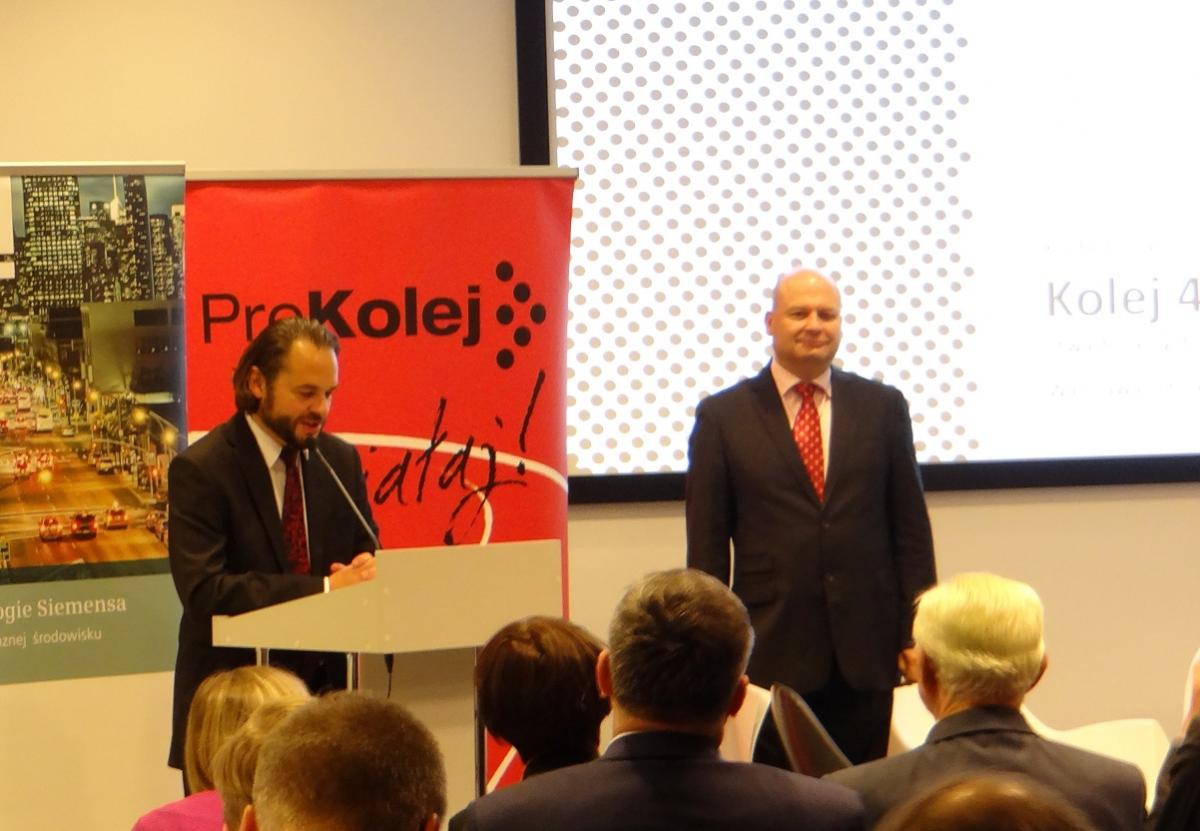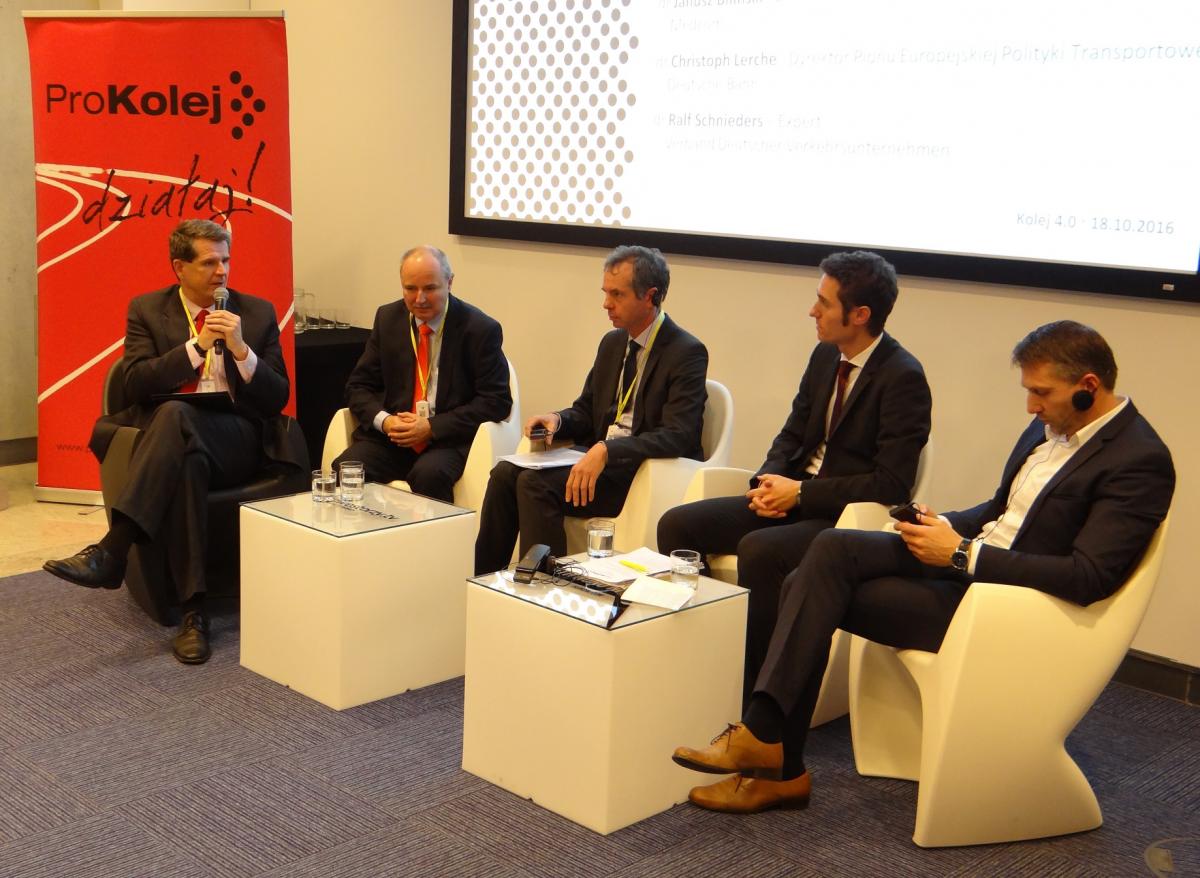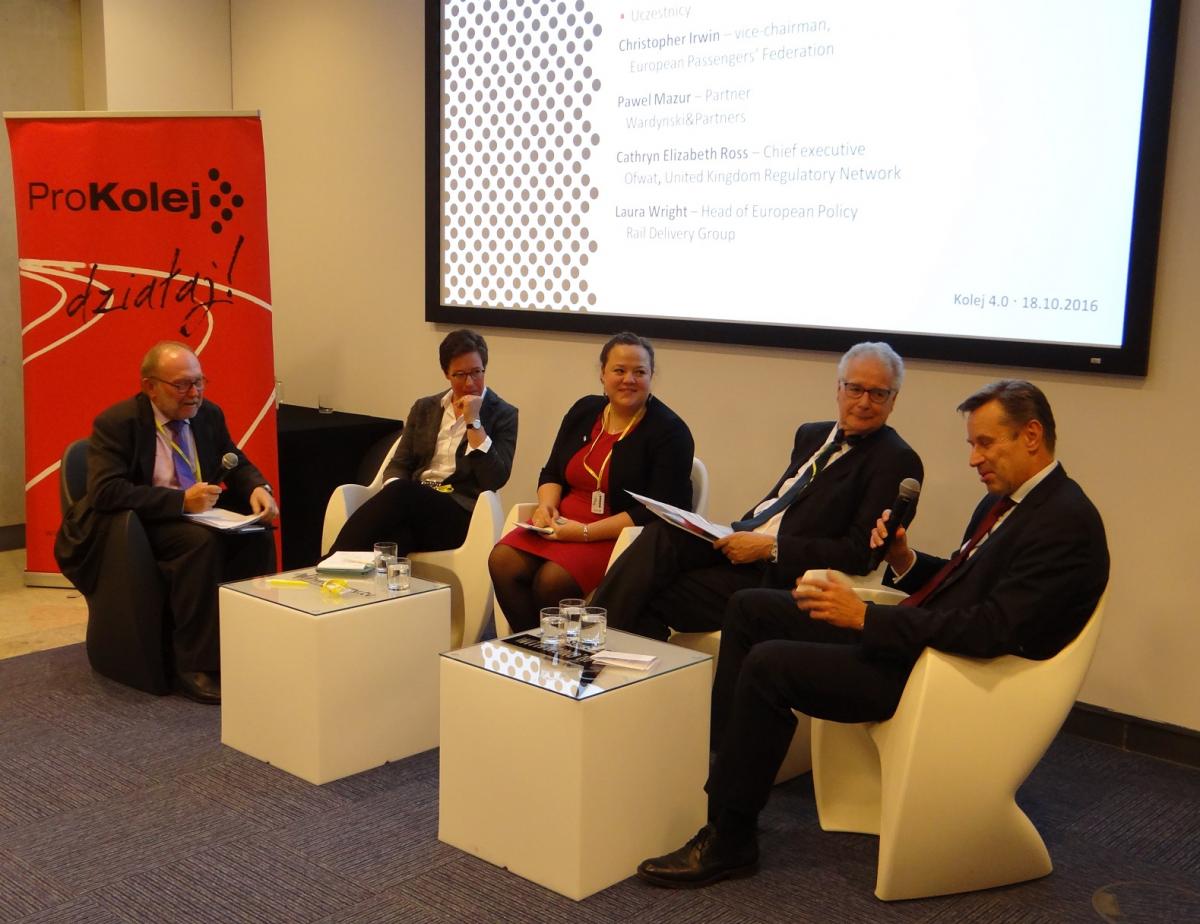Kolej 4.0 conference - summary
More than 100 guests participated in the third edition of Rail22 conference. The theme of the October event organised in Centrum Giełdowe in Warsaw was ‘Rail 4.0’ and it referred to the latest market trends, including the current technological revolution.
The guests were welcomed by the Vice Minister of Development, Witold Słowik, and Adam Wielądek, PhD, honorary president of the International Union of Railways (UIC). The role of the event host was played by Jakub Majewski, PhD – president of ProKolej Foundation.

The introductory presentation to the first discussion panel was given by Christoph Lerche, PhD – Head of Transport Policy Europe at Deutsche Bahn headquarters. He pointed to the chances offered by innovations in the rail sector but also to challenges faced by rail competitors. He also presented the areas in which the concern is active in order to improve its competitive position as well as the ‘Zukunft Bahn’ programme, currently executed in Germany. Krzysztof Owczarek from Novamedia completed the presentation of Christopher Lerche by giving an interesting example of Polish solutions existing in the German market.
Later, Radosław Czapski from the World Bank led a discussion of international rail experts (Janusz Biliński from Medcom, Christoph Lerche, PhD, and Ralf Schnieders, PhD, from Verband Deutscher Verkehrsunternehmen). In the statements of panelists but also in the results of the questionnaire carried out among conference participants most emphasised were the issues of standardisation of solutions for rail, balance between advanced solutions and cost effectiveness, financing of the research and development sector as well as international cooperation in designing development programmes. Interesting was also an attempt to specify the concept of ‘Lukstorpeda 2.0’.

The second part of the conference was opened by Cathryn Ross, Ofwat chairman (water regulator) and previously board member of ORR (rail regulator), who spoke about basic rules of economic regulation and how it should be adapted to market changes. The conclusions made were then referred to the rail transportation sector.
The discussion panel devoted to the role of markets, law and regulation in rail market was carried out by Piotr Jasiński from Oxford Economic Consulting, and its participants, apart from Cathryn Ross, included Christopher Irwin (European Passengers’ Federation), Paweł Mazur (Wardynski&Partners) and Laura Wright, responsible for European policy at Rail Delivery Group. To illustrate the potential of market instruments, the panel moderator reminded the words of Margaret Thatcher who believed that the government does not create solutions for the economy, but most often poses problems for it.

Out of many issues discussed and further answers given in the questionnaire, representatives of the Polish rail sector were particularly interested in complementarity of foreign and Polish experience as well as the role of individual institutions affecting the market – in particular of the regulator. This part of the conference concluded with the question about the need to draft a new rail transportation act. More than three-quarters of the participants voted for doing it anew.

